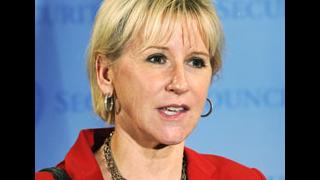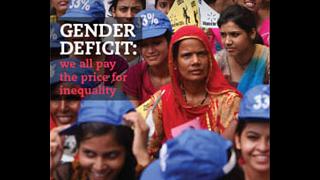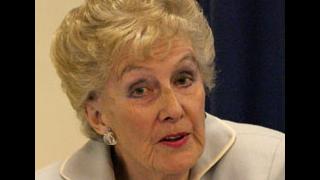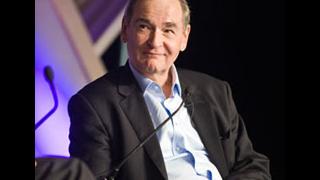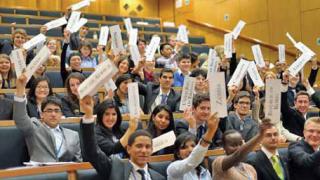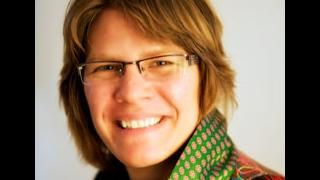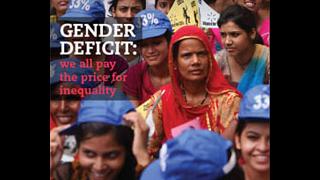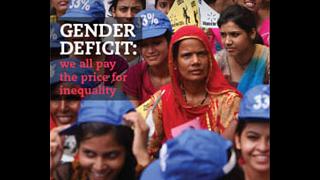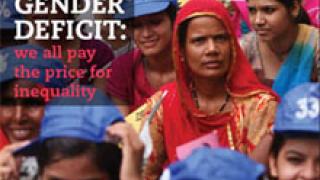
The UN has changed dramatically since its inception sixty-five years ago. It began as an organisation with the primary aim of maintaining international peace and security - seen, at the time, as the outcome of an efficient process of managing intergovernmental relations. Now, the concept of peace and security is felt to be much broader, encompassing the notion of 'human security' - an emerging people-centric paradigm which holds that the situation of individuals, their well-being and safety, is just as valid a reference point for security as traditional inter-state relations.
Equally, the UN has become much more than an arbiter of international peace, acting as a key development and humanitarian aid organisation whilst continuing its traditional security work. The organisation should therefore be recognised as consisting of two distinctive parts - its peace and security component, revolving largely around the Security Council and peacekeeping missions, and its development and humanitarian operations, which are conducted through a large number of funds, programmes and specialised Agencies. These agencies - which include the UN Children's Fund (UNICEF) and Development Programme (UNDP) - together command a bigger share of the resources committed by UN member states. Indeed, development is often touted as the UN's 'most pressing concern' by the majority of member states.
The UN Field System (UNFS) is a central plank of the organisation's development work and can be regarded as an institution in its own right. The UNFS consists of the country and project offices of numerous UN agencies (such as UNICEF and UNDP). Although technically the local arm of these UN bodies, the field offices have, over the years, assumed an institutional personality of a national and local nature, equally concerned in working with their parent organisations, and their national government counterpart institutions. Domesticated to varying degrees, these offices have close working relationships with the relevant government institutions and civil society groups, and can be an important part in strengthening and improving national institutions and services, especially in achieving UN Millennium Development Goals.
UNFS offices are run largely by nationally-recruited personnel who are distinct from the international civil service. One could therefore say that a 'national' UN service has emerged across most countries of the globe, and on the development and humanitarian side of UN operations, this cadre of staff - which I estimate to number more than 1,000 - is arguably far more significant than the international civil service, especially in the delivery of frontline services.
It is therefore regrettable that this national civil service has not been accorded the same significance as its international counterpart. Currently, recruitment practices at the national level vary greatly, and there has been no concerted effort to improve the quality of these key development functionaries who can make a major difference to the shaping of policies within national governments. The UN must review its recruitment and training policies for these national professionals as a matter of urgency. Given their familiarity with local systems and languages, they are vital players in the effective delivery of UN operations.
The field system could also be strengthened through better coordination among various UN actors at the field level. Despite efforts to do so, notably the 'One UN' initiative and the appointment of UN Resident Coordinators, lack of cohesions still thwarts country offices. Perhaps the focus should instead be on coordinating UN activities at the field level with those of national governments. Functional coordination with government agencies in areas such as education, health, gender issues, agriculture and food security can contribute significantly to the development process. UN field offices could therefore act not just as partners to the government but national institutions whilst remaining international offices.
Finally, UN member states must re-visit the current methods of government interaction with the UN development system. At present, states focus their efforts on UN headquarters in New York, Geneva, Vienna, and Rome. This means that the key players are states' UN ambassadors, who tend to be far more political and far less informed of national and local development concerns. At times, this can hinder rather than further development initiatives. Instead, states should concentrate on interactions between UN bodies at the field level and relevant government institutions. This bottom-up approach would be far more in tune with local needs and likely to produce better results on the ground.
Leelananda de Silva is a UNA-UK member and has served as a consultant to a variety of UN bodies for the last thirty years.

